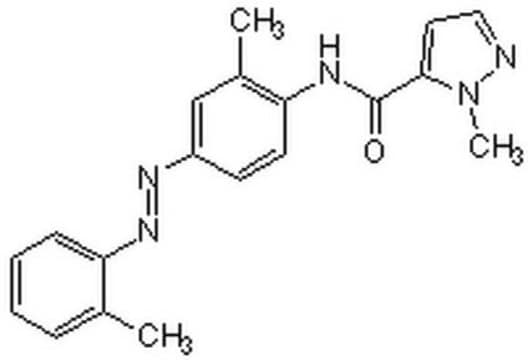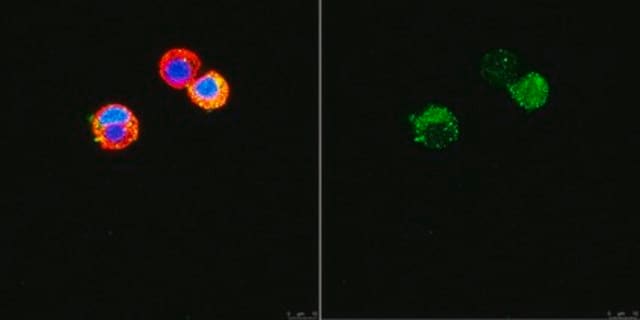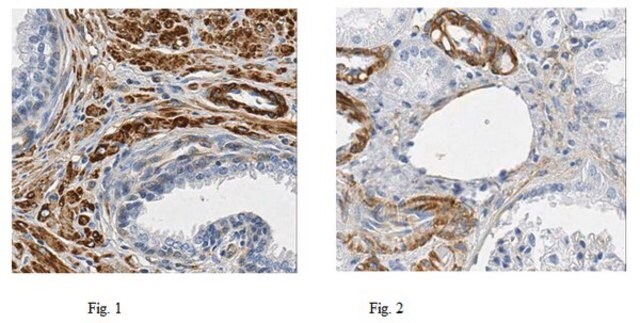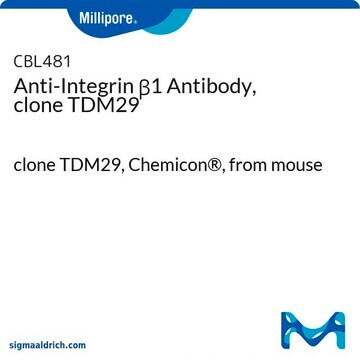MAB131884
Anti-BASE-tag Antibody, clone 7C7
clone 7C7, from mouse
Synonyme(s) :
Capsid protein VP1, Capsid protein AVV9
About This Item
Produits recommandés
Source biologique
mouse
Forme d'anticorps
purified immunoglobulin
Type de produit anticorps
primary antibodies
Clone
7C7, monoclonal
Espèces réactives
adenovirus-infected cells, virus
Conditionnement
antibody small pack of 25 μL
Technique(s)
immunofluorescence: suitable
immunoprecipitation (IP): suitable
western blot: suitable
Isotype
IgG2bκ
Numéro d'accès UniProt
Modification post-traductionnelle de la cible
unmodified
Description générale
Spécificité
Immunogène
Application
Immunofluorescence: A representative lot detected EGFP-BASE-tag-Actin in HeLa cells transfected with EGFP-BASE-tag-Actin (Courtesy: Dr. Thomas Weber, Icahn School of Medicine at Mount Sinai, New York).
Inflammation & Immunology
Qualité
Western Blotting Analysis: A 1:500 dilution of this antibody detected BASE-tag in HEK293 cells transfected with GFP-7C7-Actin.
Forme physique
Stockage et stabilité
Autres remarques
Clause de non-responsabilité
Not finding the right product?
Try our Outil de sélection de produits.
Certificats d'analyse (COA)
Recherchez un Certificats d'analyse (COA) en saisissant le numéro de lot du produit. Les numéros de lot figurent sur l'étiquette du produit après les mots "Lot" ou "Batch".
Déjà en possession de ce produit ?
Retrouvez la documentation relative aux produits que vous avez récemment achetés dans la Bibliothèque de documents.
Notre équipe de scientifiques dispose d'une expérience dans tous les secteurs de la recherche, notamment en sciences de la vie, science des matériaux, synthèse chimique, chromatographie, analyse et dans de nombreux autres domaines..
Contacter notre Service technique







